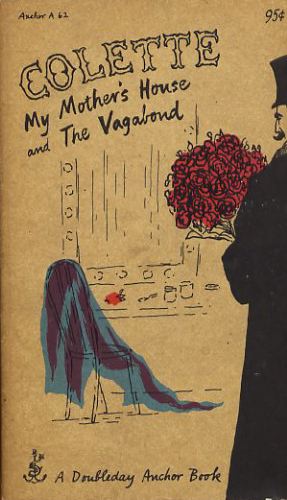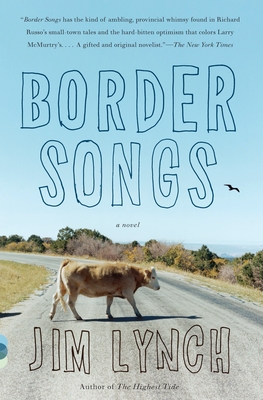A beautiful black vintage leather case, embossed with some type of gold Moroccan quilted design, for my new frames. I picked this up at a junk shop in Edison, Washington. The facade makes a world of difference, don't you agree?
Recent Posts
Friday, August 27, 2010
Wednesday, August 18, 2010
There is No Frigate Like a Book to Take Us Lands Away
Posted by
C. R. Dimalla
I've come to grips with the fact I won't have any real vacation respite this Summer season. Despite the occasional trip to the San Juans. I'm dealing with it by virtually devastating my book store's Travel Writing section, which is where I garnered most of these gems. I'm pleased to say this is possibly the most positive reading season I've had to date....even if it has been fraught with total mind numbing restlessness. If some of the novels below are not considered travel writing, they may as well be.
"I saw in their eyes something I was to see over and over in every part
of the nation - a burning desire to go, to move, to get under way, anyplace, away
from any here... nearly every American hungers to move."
Steinbeck may be the last great American. At least the last great American writer. Travels with Charley has won the place of favorite book for me and a place in my heart because of my traveling background and my experiences in different American regional cultures. The only major regional distinction I've seemed to miss living in is the Midwest, but I'm mostly glad of it. Rumor has it that Steinbeck set sail in Rocinante because he felt like...and was...a man dying. If that doesn't speak to a place of honesty and authenticity, then surely the amount of character Steinbeck puts forth will be reason enough.. For me, he's the ultimate traveling partner; one who is both truthful and open, yet heavily discerning. In a world that can be very bleak, he's my sliver of real light. As usual, Penguin's classic book covers really hit home.
"There is no doubt that, if ever my heart
were to call my master Chance by another name, I should make
an excellent Catholic."
The Vagabond is Colette. For there can be no better explanation for how vivid, raw, and truthful this novel is and it's probably one with which I can most associate my own feelings and troubles. She really beautifully captures the independent woman, bent from emotion, but strong enough to take flight. It's uncanny that the heroine of this story is also named Renee (Nere). Renee is shrouded in the life of a performer and entertainer, a spectacle so to speak. But this is only a platform to expose her intense loneliness. My old Penguin version claims that perhaps Renee's decision to leave a lover was a "cowardly" action. But I can't agree when I know that sacrificing love for wanderlust is a a move I may have to make someday. And will. The cover of my copy features a refined sketch of someone who looks an awful lot like Maggie Gyllenhall, who would make an excellent Renee Nere.
"'But actually," she said, 'the whole of Savannah is an oasis.
We are isolated. Gloriously isolated! We're a little enclave on the coast - off by
ourselves, surrounded by nothing but marshes and piney woods.
We're not easy to get to at all, as you may have noticed. If you fly here, you usually
have to change planes at least once...We're a terribly inconvenient destination!"
I have nothing personal invested in this book. I've never been to Savannah, I don't have any close ties to the South that haven't been broken by time and age. I'm not a budding journalist, an off beat millionaire, a drag queen, or a socialite. These are important facts to note because despite having many things going against it for me, this novel was so skillfully written and the characters so adorned with personality and charm that you can't help but wish you DID have something to share with them. I was surprised to find this one in the travel section of my local Village Books, but after reading it I've come to the realization that if anything can make you want to see Savannah, this would be it.
"In a paperback copy of Tristram Shandy bought in a second-hand bookstore in Alice, this
was scribbled in the fly-leaf, 'One of the few moments of happiness a man know in Australia is that moment of meetings
the eyes of another man over the tops of two beer glasses.'"
When I lived in Australia there was a great divide between my real life and my other life. I try very hard to find the distinctions between what life was like living in Adelaide, the big ocean side city and what is was like back in the United States. But the real divide was between Adelaide, Sydney, Cairns, Perth, Darwin, Melbourne and all substantial cities in between, and the life I spent traveling the real Australia.....the dry, bony, sweltering, thoroughly baked interior. I feel through reading The Songlines, I came closer to understanding a part of the land I was too young to understand, only feel. And more than garnering knowledge about Aboriginal folk lore, it's raised a lot of questions about the meaning of 'wanderer'. Bruce Chatwin has numerous other travel writing pieces under his belt but this is his "National Bestseller"...of which country, I don't know.
"But a closer look hinted at the changes. Many barns and silos had nothing to do with cattle or farms anymore. U.S. border towns no longer served as burger pit stops for Canadian Skiers dragging home from Baker And nineteen-year-old Americans stopped rallying across the line for the novelty of legal drinking. Yet despite the slump in legitimate commerce, a curious construction boom was taking place on both sides. New cul-de-sacs rolled north like advancing armies and young Canadians continued stacking trophy homes on abrupt hills with imperial views of America."
I never thought I would come across a book written specifically about the appropriately deemed "sleepy hinterlands" of the place I live. Although I wasn't born here, I know more about the geography and feel of the border than I do about any other place I've lived. In my artistic practice, I'm constantly searching out themes to describe my existence, and the idea of a cross roads between two cultures has certainly been a focus. While the writing didn't impress me beyond engagement, to read about Blaine, Custer, Lynden, Bellingham, and Vancouver really sheds some light on things that are all too familiar. I can't say much beyond that, because it is a treat inexpressible to be able to form a picture of a setting in your mind based not on an author's description but based on the fact you know exactly where that street is and what it looks like.
I hope to end my Summer reading season on the following: Out of Africa - Isak Dinesen, The Conde Nast Traveler Book of Unforgettable Journeys, and The Great Railway Bazarre by Paul Theroux...amongst others.
(Post title is a quote from Emily Dickinson)












